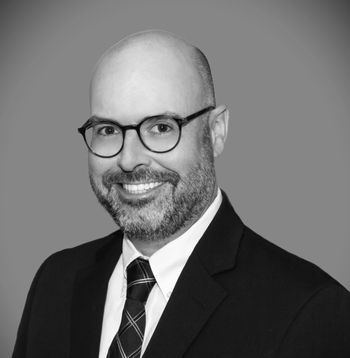PROF ELLWANGER: Why I'm giving away a cash prize for finding plagiarism in my work
To say that 'everybody is doing it' is to smear the many professors who work hard to uphold the standards of academic honesty in their published work.
Adam Ellwanger is a professor of English at the University of Houston - Downtown. His primary areas of expertise are rhetoric and critical theory. He writes political and cultural commentary for outlets like Human Events, Quillette, American Greatness, The American Conservative, New Discourses, Minding the Campus, and many more.
Neither Campus Reform nor the Leadership Institute is affiliated with or involved in the contest. Professor Ellwanger is conducting the contest in his personal capacity as editor of The Peerless Review.
Since Claudine Gay’s resignation as President of Harvard University, DEI advocates and sympathetic academics have rushed to her defense. There are three major arguments that they are making. First, they say that the repeated instances of plagiarism in Gay’s publications are not actually plagiarism, but are instead “mistakes” that involved “insufficient citation” or “duplicative language.” The second claim is that this kind of plagiarism is common practice among professors. That assertion leads to their third charge: that this is only happening to Gay because she is a black woman.
All of this is nonsense. The unattributed material that Gay stole from existing sources is a textbook case of plagiarism. Further, it’s important to emphasize that this is most certainly not common practice among academic researchers. To say that “everybody is doing it” is to smear the many professors who work hard to uphold the standards of academic honesty in their published work.
[RELATED: PROF ELLWANGER: Plagiarizing Toward Social Justice©]
As an English professor, I take personal offense to these claims. Some have warned right-leaning professors like me that our work will now be scrutinized like Gay’s was – hinting that we’re all about to be outed as plagiarists.
Well, let me be the first. Since 2008, I’ve published roughly a half-million words in peer-reviewed academic journals, magazines, and online. I invite people to scrutinize that output. As editor of The Peerless Review, an online journal for scholarship in the humanities and social sciences, I’m putting up $1,000 in prize money. For every proven instance of plagiarism in my work, I will pay $100. If 10 valid accusations are substantiated, the prize money will all be claimed and the contest will end. In the event that we never reach 10 substantiated instances of plagiarism, the contest will end on February 6, 2024. Please see the rules and further details on Twitter.
Why am I doing this? There are a few reasons. First, I don’t believe that any plagiarized material will be found in my work. Further, if that conviction is confirmed (and no prize money is claimed), then I’ll have proven a point: it’s simply not true that all professors commit violations like the ones that Gay did.
Is it possible that I will be proven wrong and that instances of plagiarism will be found in my work? I suppose it is. In that event, Gay’s defenders will be vindicated: it will show that one can, in fact, commit violations of this sort unintentionally and accidentally. But unlike Gay, if such errors are found in my writing, I’m not going to attack my accusers – I’m going to reward them. That’s because a true scholar should be grateful when his work is scrutinized by readers. If someone can point to examples of accidental plagiarism in my work, then I am in their debt.
One aspect of Gay’s story that has been ignored is that not all of the failure belongs to her. The fact that her repeated instances of plagiarism went undetected for so long shows that there were failures at many levels. The editors of the journals where she published her work failed to recognize the plagiarism. The peer-reviewers (who are supposedly essential to ensuring the quality and originality of research) failed to find the plagiarism. Even Gay’s own tenured colleagues, who reviewed all of her scholarly writing when they considered whether to grant her tenure, didn’t do their due diligence.
[RELATED: PROF ELLWANGER: DEI is a wolf in sheep’s clothes]
In short, it’s not just Gay who was exposed. It’s the entire peer-review process. Peer-review is supposed to be a critical step for validating the value of academic research. The Gay saga shows that the peer-review process is broken – it’s no longer ensuring the quality or originality of new work. This dysfunction is the main reason that I started The Peerless Review: I believe that the value of original research should be determined by readers – not by two or three “peer reviewers” who play the role of gatekeepers while letting bad research get published and ensuring that good work is not.
All scholarly research published at The Peerless Review is work that was never vetted by the peer-review process. Nevertheless, it is of high quality. In the spirit of academic honesty, then, The Peerless Review invites readers to prove that “everybody” plagiarizes – by documenting it in my work. $1,000 is up for grabs. Let the game begin.
Editorials and op-eds reflect the opinion of the authors and not necessarily that of Campus Reform or the Leadership Institute.

